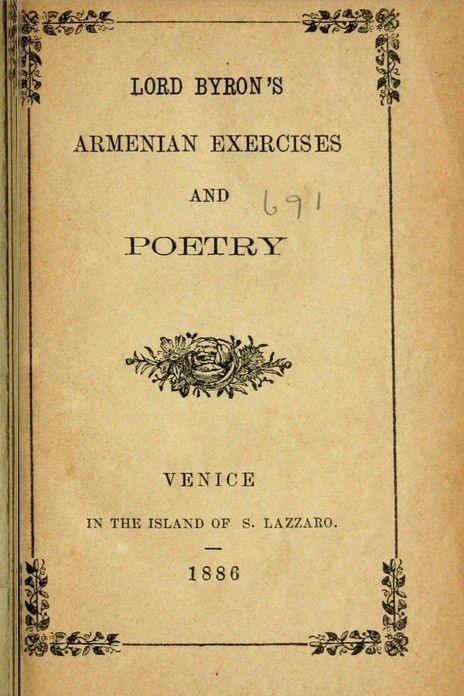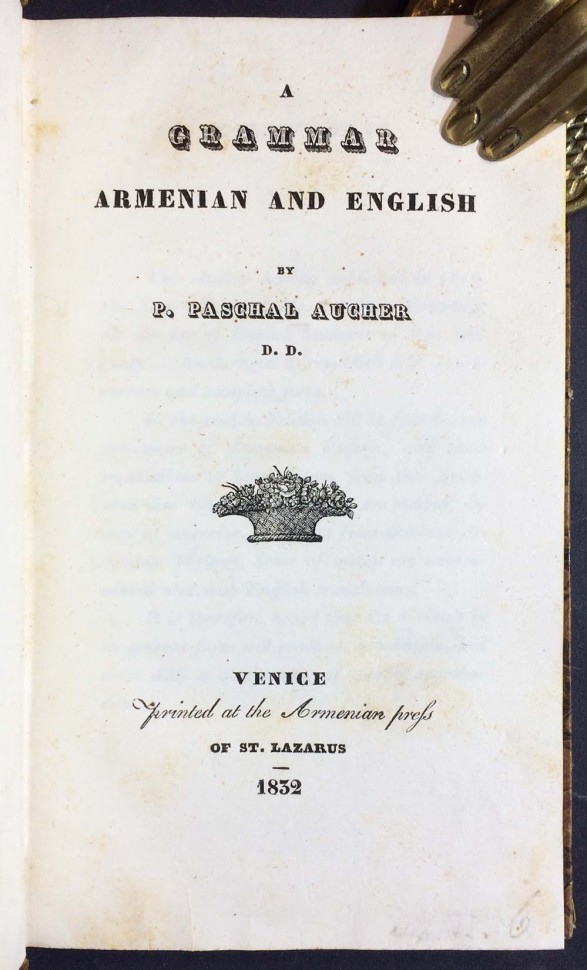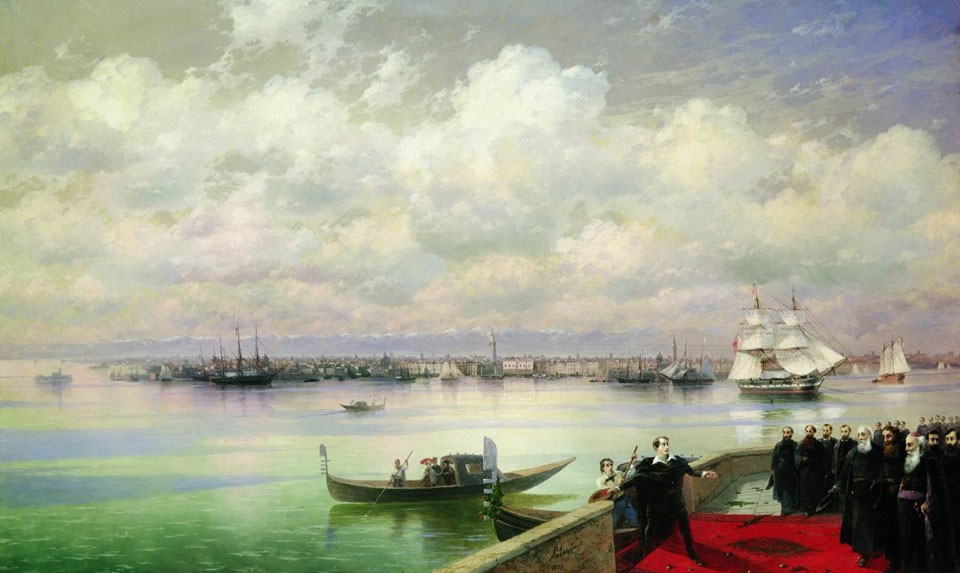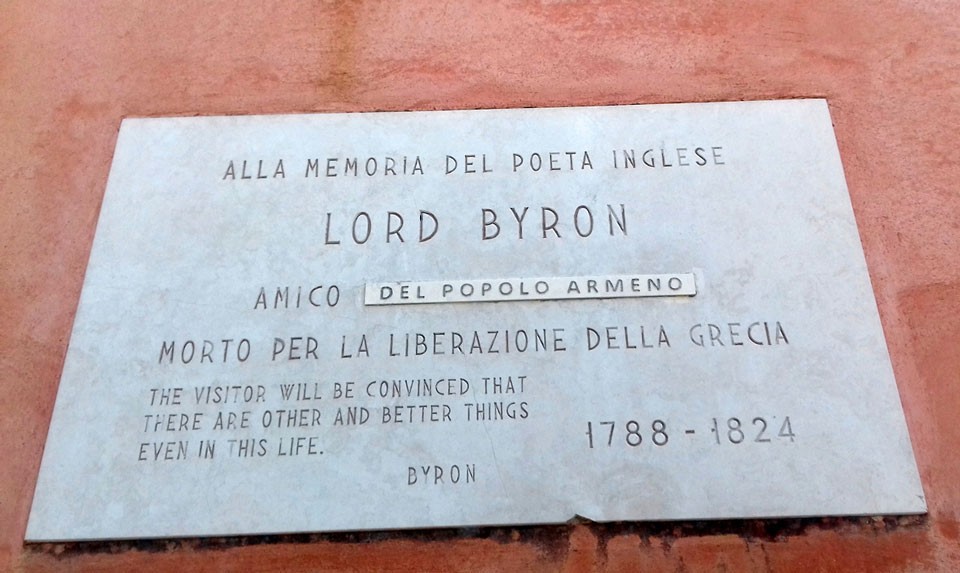George Byron About Armenians, Armenian Language And Armenia
"I learned the language of the Armenians in order to understand how and what language the Gods spoke, for the Armenian language is the language of the Gods, and Armenia is the homeland of the Gods, and the Gods come from the Ararat valley. There is no other country on the globe that would be as full of wonders as the land of the Armenians”
- George Gordon Byron, English romantic poet, who conquered the world with his poetry.
The poet was a great admirer of the Armenian culture. On December 2, 1816, Lord Byron arrived at the Armenian Catholic Mekhitarist Monastery in Venice to study the Armenian language.
With the help of the abbots of the monastery of the Island of St. Lazar, the poet actively got acquainted with the Armenian manuscripts and spoke with great admiration about the Armenian culture. Father Harutyun (Pascal Aucher) taught him the Armenian language, and together in 1821 they created the "Grammar of the English and Armenian Languages".
Byron compiled his Armenian writing exercises in the book called "Lord Byron Armenian Exercises and Poetry". In July 1823, Byron left Italy to join the Greek rebels who were waging a war of independence against the Ottoman Empire.
Here is what the poet wrote about Armenians and Armenia:
"Arriving in Venice in 1816, I, as probably all other travelers, were greatly impressed by the Armenian community of St. Lazarus, which seems to combine all the advantages of a monastic institution, without possessing any of its vices. Cleanliness, comfort, meekness, unfeigned piety, the talents and virtues of the brothers of the order are able to inspire a secular person with the conviction that there is another, better world, even in this life.
These people are the clerics of an enslaved, but noble nation, which was subjected to exile and oppression along with the Jews and Greeks, but did not endure from it either the bitterness of the former, or the servility of the latter. This nation has acquired wealth without resorting to usury, and all the honors that can be bestowed on one who is in bondage without intrigue...
It would be difficult, perhaps, to find the annals of the people, less stained by crimes than the annals of the Armenians, whose virtues were peaceful, and whose vices were the result of oppression. But whatever their fate and it is sad, whatever awaits them in the future, their country must always remain one of the most interesting on the entire globe...
If the scripture is correctly interpreted, then the Paradise was located precisely in Armenia, which paid as dearly as the descendants of Adam in general, for the fleeting participation of its soil in the bliss of the one who was created from its dust: there the water began to subside after the Great Flood and a dove flew out.
But almost with the disappearance of Paradise, the misfortunes of the country began, because, although it was a powerful kingdom for a long time, it was rarely independent: Persian satraps and Turkish pashas equally contributed to the ruin of that region where God created man in his own image and likeness."





